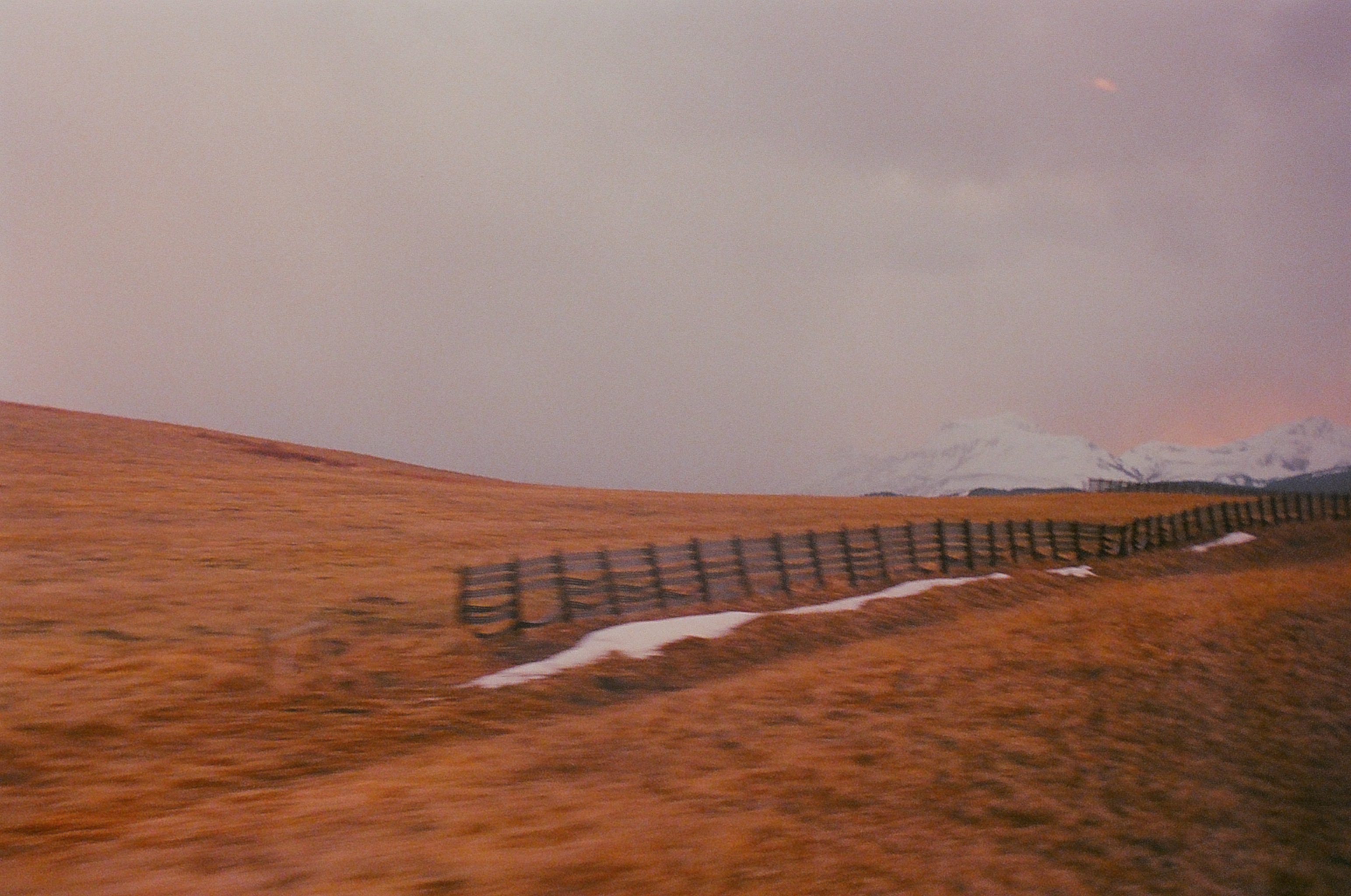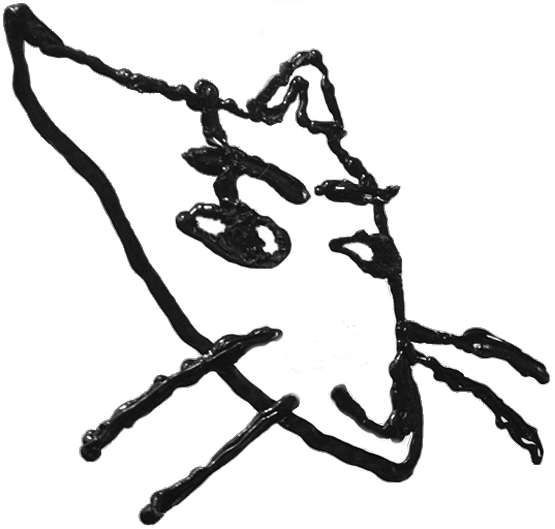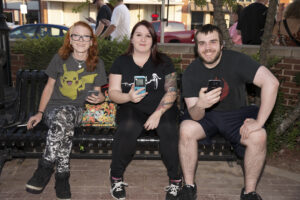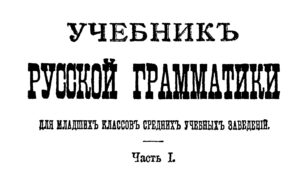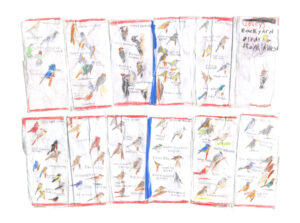Recently, I decided to move out of my rented room in Oregon, and find the American Dream.
I decided that if I was no longer paying rent, I would have more extra cash to buy a property and claim my own piece of the Dream. Additionally, I was perturbed by the piles of scrap metal in the living room and the smell of rotting food coming from the refrigerator. The floor was covered in razor blades. During the winter I could hear the rats rehearsing for Cirque du Soleil in the ceiling above my lofted bed. It occurred to me at that time that none of this was part of the American dream. I had to come up with a plan to get out. In America, a car and a house are required in order to be truly happy. There is just no way around it. In fact, what you really need is a minivan—one that will fit your four kids on a hot day while you drive in circles around the mall. But you can’t go in yet, only quiet children get to shop. Not only do you need a minivan—you’ve got to have someplace to sleep and eat and charge your cell phone, which is arguably more important. While you are upkeeping your domicile and your various large machines, it seems only right that you would take breaks and indulge in something truly human and animalistic. And I don’t mean darts. I’m talking about sexual companionship. So of course there are several moving parts here, not only in terms of the sexual companionship but also the Dream as a whole. You can’t just waltz off on a flight of fancy and spend a year in the cantina cavorting with prostitutes—you may satisfy the need for sexual companionship that way but you will certainly not end up with a house and a minivan, unless you are heir to an inheritance of dividends from Big Pharma or a similarly lucrative industry. But that’s very few of us. Most of us must juggle several competing lines of strategy, hedge our desires and delay gratification of our needs, until we find ourselves in our minivan following our GPS systems directly into the driveways of our houses, where we will fuck our spouses and teach our kids about home ownership and how to operate a minivan. And I knew if I was going to get there I would have to step over the pitbull outside my door and start immediately. So I packed my bags and headed off into the sunset, as I am wont to do, about once every year when the weather turns nice, or when I haven’t gotten enough sleep or have eaten too much sugar. But this time I knew I would return to a warm castle (house) and beautiful ox (minivan) where I could plot my next move: the accumulation of inflation-proof commodities like lead. But that’s a story for another time.
It was the beginning of summer, and people were feeling free and easy. The world was opening up a bit as the infectious disease had begun to subside. It occurred to me that I must celebrate. The first stop on my journey was Reno, where I knew I could make some extra money on the Klingko winning wall, a slot machine with a large screen containing a poorly animated model holding a large case of money, who lived inside and was never allowed to escape. If I was lucky, which I was—due to the array of lucky symbols I had just gotten tattooed on my body—I would walk away with some of that money. As I sat at the slot machine, a man came up to tell me that I looked like Bob Dylan in the 1970s. Bob Dylan is a famous folk singer with a very large house. The man then came up five minutes later to show me a picture of Bob Dylan on his phone. “This is Bob Dylan,” he says. I didn’t know how he got the picture, but it looked like a picture of me. I figured that since Bob Dylan has such a big house, this was a very good omen.
I did win some money in Reno of course—$150, to be exact, $50 of which I spent on drinks and $100 of which I saved for the down payment on my future house, and then later spent on finger steaks at the gas station. It occurred to me that I would need more money, more luck, and a spouse, if I was ever going to buy my house and achieve my American Dream. For all that, I was going to need more lucky tattoos, a lot more money, and knowledge of the real estate market. And I was getting tired of finger steaks, which don’t keep very well in a backpack. So I boarded a flight to Chicago to check out the available real estate and get a local hot dog.
As it stood I didn’t have anything. No driver’s license, no minivan, no house, no spouse. And no idea where I would find these things, and get close to my American Dream. It occurred to me that maybe I was misguided—could I ever really achieve the American Dream with my meager resources and lack of a work ethic? It seemed like every day I travelled I spent more money—and the dream seemed to get further away—like a non-player character in the early 2000s Harry Potter video game who always darts ahead of you and then beckons you from some hallway deeper into the Hogwarts School of Witchcraft and Wizardry. And if I did achieve the dream, would the game immediately end, leaving me sitting in front of a computer dazed, and wondering if the Harry Potter books are some sort of larger allegory related to religion or political science.
In Chicago I tried to bury these thoughts and just eat. I would stop by the hot dog emporium with Tom to get a Chicago dog, and study the various toppings—relish, mustard, onions, pepperoncinis—all the Chicago dogs in Chicago are Vienna Beef, but I was told by someone whose brother owned a franchise that Vienna Beef sold 7 tiers of different hot dogs. When a hot dog restaurant starts out, they can choose which tiers to buy for their restaurant: highest, lowest, or something in between. I guess what you choose depends on the resources you have, and your self-worth. Some dogs have a bit of a snap; others are softer, which is not my preference. If one dog was not enough, we would hit another spot and get another one. With so many types of Chicago dogs, who can think about the housing market? I continued to eat, but something wasn’t right. Finger steaks, hot dogs, and the heat of the sun. I went to the beach without sunscreen and ended up completely red. At night I tossed and turned, watching the skin peel off my knees. I wondered about the various housing markets in the various cities around the country, around the globe, and how much money it takes to get a piece for myself. Everywhere I went, everyone was living somewhere. Some were in one-bedroom apartments, some in houses, and some had tied the ends of a tarp to a fence, creating a shelter, and rigged up their propane generators outside.
Tom made a reservation at Takito Kitchen, where he said we could get free shots because his sister used to work there. While we were waiting for Tom to arrive, me and Sam took his dog Bojangles to the beach. I talked about my tattoos. I told Sam that the dice, the triple sevens, and the various auspicious symbols tattooed on my body were totems of my luck. These symbols were lucky, and their presence on my body rendered me lucky. I was impervious to danger. Sam didn’t agree. He said that luck by definition was random, and couldn’t be influenced by my tattoos. We sat down on the grass by the water, and Sam tied his dog Bojangles to a tree. Another dog came up and they began to flirt. “Minnie’s got a mind of her own,” the dog’s owner said. “She don’t listen to me, she does what she wants.” Minnie sprinted off, and her owner ran after her, calling her name. We had drunk half a bottle of tequila by the time Tom arrived. We got in his car and I pulled up the map on my phone. I wanted to play some music on YouTube through his car stereo, but it wouldn’t play at the same time as the map was on. I tried to play one of my favorite songs, “What Am I Going to Do” by The Dovers, a group from the 1950s whose identities have been lost to time. There were several bands named The Dovers, and no one quite knows which one recorded which songs, or who the individual members were.
The cars weaved around each other, switching places like errant birds in a flock. We turned off the freeway toward Takito Kitchen and a white sedan on our left ran a red light. As it collided with Tom’s car, we sprang into the air and I threw up my hands to shield my face from the flying shards of glass. Blinding light obscured my vision as all our possessions rained down on us. The vehicle performed a varial flip and bounced on its hood, shattering the windshield. It sprang up again and this time landed on its wheels, which were still spinning. Tom, the driver, had been thrown into the back seat, and he leaped back into the front to press the brake pedal. I expected to wake up parapalegic or dead. But once I stumbled out of the mangled car, I felt great.
There was adrenaline running through my body. We exited the car and walked over to a patch of grass by the intersection. Tom lay down in shock, worried that his neck or spine were broken. All the cars at the intersection had stopped to watch. Several people got out to ask us if we were OK. I sorted through the glass and trash that was scattered around the car to find our phones, sunglasses, and other personal items. An ambulance arrived, followed by a fire truck and some cop cars. EMTs and police got out and began to hound us with pedantic questions.
In the days following the accident I felt euphoric. I had no physical injuries, and, except for tiny particles of glass in my skin and ears, I was unscathed. I decided to party. The streets of Chicago were filled with people who had also decided to party. The bars were packed with people. People in clothes that reminded me of baseball, or crayons. The streets were filled with sound. People shouted and laughed like drunken courtiers in a walled garden, courtiers who had not heard or acknowledged the caws of vagrants on the street outside, their feet black with soot, predicting doom and apocalypse. Up until recently, the infectious disease had kept people out of the bars. But not now. A man with long hair and mutton chops came up to us. His arm was in a sling. “Where are the cool bars?” he asked us. “Where’s the cool scene?”
“How’s it going?” I said. “What’s your story?” He was incensed by the question. “I’m not going to answer you,” he said, and left, but not before telling me that he had broken his arm beating someone up, with the implication that I could be next.
As we rounded a corner, we saw a snapback hat and a phone sitting on a newspaper box. The phone was on, and playing a music video at full volume. The hat was new, with the tag still attached. I stopped by the newspaper box to examine the music video. There seemed to be no one around. Just a hat and a phone on a newspaper box. Suddenly, a man popped out from some hidden place, and walked towards me. His head was covered in a white doo-rag that suggested the absence of a hat. “Those are mine,” he told me, seeming perturbed.
“Why is your phone playing a music video to no one on this newspaper box?” I asked him. “I’m trying to get a woman,” he said. “They are not for you.” I was not a woman. “We could make love,” I told him. He looked at me like he was going to kill me, and I left.
At the end of the night, walking home with Tom and his partner, we were approaching his apartment when a small girl ran up to us. “I’m sorry, can I please walk with you?” she asked. “I’m being followed. This guy just picked me up and tried to carry me into an alley.” We walked her to her friend’s apartment, and then doubled back, searching for the assailant. We looked down the alleys and side streets but to no avail. When we couldn’t find him we went home and went to sleep.
Soon it became clear that, due to the car accident, Tom was concussed. He seemed confused and distracted, and would mutter and walk in circles for hours on end. He became fixated with erasing any record of his identity from the internet, and would work his thoughts about Karl Marx into every conversation. While these behaviors were present before the concussion, and in fact enduring parts of his character, something was clearly wrong. The doctors told him to take a couple weeks off work and rest. He travelled back to Wisconsin, and left me with the keys to his apartment.
I thought I was fine. No scratches on my body. Even the glass in my skin, hair, and ears had now disappeared into my flesh. I continued to eat, and drink heavily. The car accident was just a distant memory. On my last day in town, I met up with a childhood friend who happened to be visiting Chicago. Gautama had been living in New York with his family, after returning home from Eastern Europe, where he was supposedly writing some kind of thing for some kind of magazine. He had been there for several years. I didn’t know the details. My flight was at 7 p.m., and I decided to take some LSD. Gautama took some as well, and we left the apartment after sucking on two tiny paper squares. We went to the zoo, where a lonely zebra with an erection stood in an enclosure. Families with their herds of children milled around buying various ice-cream accessories. There was no water anywhere. The zebra looked sad in his enclosure, and I wondered what he did all day with no zebra friends and family around to keep him company, isolated in the midst of a human society frantically seeking leisure, and sucking their ice cream like it was not the readily available commodity he knew that it was.
We left the zoo and eventually undulating textures of the air and the fragmented rays of color gave way to a dip in my brain’s ability to process serotonin. Gautama had left and I was alone on my way to the airport. Soon I was on a plane to Los Angeles. I had told my friend Jesse that I would meet him in Los Angeles, as it had always been his dream to visit Hollywood Boulevard and the Sunset Strip. To see the Walk of Fame and visit the clubs where the psychedelic rock bands in the 1960s had first played for an audience and achieved acclaim. I wanted to be there as he actualized his dreams, and frankly, I had nowhere else to go. But as I hurtled through the sky, my face wrapped in a fabric medical mask, I began to ruminate. The acid had left me tired and yet acutely aware of my mind’s condition. It was at this moment I realized: during the accident, I had been concussed. Knocking around inside my skull as the car flipped, my brain suffered irreparable damage that would debilitate me for years to come. I longed for a warm bed, the physical comfort of a spouse, and the convenience of a minivan. Yet my mind felt like a jar of jellybeans that had been scattered across a city block and stepped on by quadrants of mortgage brokers quickly clomping between their work boxes. I did not eat the pretzels, I did not drink the tomato juice, and I could not suspend disbelief that these things were not just processed sugar and white flour that had been sifted through itself so many times as to render it free of all nutrients and value. I was empty, with nothing to fill me, and yet so full of fractured idea-objects and screeching noise that I wished I was sand blown over an underwater beach by an atomic bomb with no purpose. The American Dream stared at me like a family at the aquarium, slurping their ice-cream drippings, and leering at a tired narwhal who was desperately seeking shelter behind the hollow plastic rocks, wondering why every wall of its vision seemed to refract, like a cruel prism, an ice cream family familiar yet alien, silently yet dutifully mocking the narwhal’s cursed existence as a thwarted interloper in an invisible cage.
When I arrived at the airport in Los Angeles, it was late at night and the air was cool. I turned on my cell phone to find a voicemail from Jesse, advising me on how to save money on my cab fare. He said that I could get a cheaper fare from the rideshare apps if I walked away from the airport and down the nearby street. Crowds of people were corralled at the nearby predetermined rideshare app taxi pickup location, waiting for hours. After half an hour of trying to find the exit, I climbed over a small fence and wandered under an overpass and towards the nearby Hyatt hotel, where, standing on the side of a highway, I looked at my cell phone and noticed that my taxi fare had gone down significantly, and my wait time had been reduced from an hour to four minutes. I was on my way to Hotel Libra, a hostel in Koreatown where my friend Jesse had been staying. In my taxi on the way there, I talked about rent prices, and the driver gave me an orange and said, “Every little bit helps.” When I arrived at the hostel, I went immediately to sleep, and awoke the next day to bright sunshine streaming through the window.
My body was sore and my head throbbed and as I walked with Jesse down the long, wide streets of L.A. in the blistering heat, and it occurred to me that I should see a doctor who could help me treat my traumatic brain injury. I felt waves of fatigue in my body and mind, and I just wanted to curl up and sleep, but I wanted to do it somewhere with air conditioning, somewhere other than a hostel, and far away from L.A. I noticed myself developing a fear of cars, as every crosswalk and intersection made me skittish, and images of colliding cars ran through my mind. There were many cars in L.A., but as neither Jesse nor I had one, we took the subway. As we sat in a subway station with our guitar, on the way to Venice Beach, a man with no pants came up to us and asked for a lighter. He was holding a straw and a piece of tin foil. I offered him my lighter, but just then our train came, and so we all got on, and he sat behind us in the relatively empty car, and used my lighter to smoke something off the tin foil.
“What are you smoking?” I asked him. “Is it heroin? Or speed?”
“It’s fentanyl!” he said with a smile, and then he returned the lighter, thanked me, and departed. The ride to Venice Beach was two hours long, and I put on my sunglasses and retreated into thought.
When I next registered my surroundings the train had moved aboveground and two LAPD officers entered. They seemed to be in a good mood. They greeted a black mother nearby, with two very young children. The police officers said hello to the children, and then one of them approached the kids. “Here you go, pal,” he said, handing the eldest child, who was around four, a gold LAPD sticker in the shape of a badge. “And here’s one for you, princess,” he said, giving one to the other child. “He’s a boy,” said the mother, audibly annoyed. The cop retreated and stood back by the doors of the train car, across from the other officer, and tried to make forced conversation with the mother. The four-year-old held the sticker, kind of wiggling it, clearly unsure what it was for. When the officer noticed that the child did not understand the sticker, he went back over. “Like this,” he said, taking the sticker, peeling off the backing, and affixing it to the kid’s chest. Once the sticker was soundly attached to the child, the officer went back to his position by the door. A couple stops later the officers departed. A little while after that, we arrived at Venice Beach.
I needed some direction. I did not feel any closer to the acquisition of property. I had no driver’s license, and no minivan, and in fact I had developed a fear of cars. Cars are very dangerous, as I had learned—and a family in a minivan could in a split second turn into a dead family in a minivan. Which is almost the American Dream, but not quite. And I wanted the real thing. The idea of marriage or children generally turns me off, but how can you drive your family around in a minivan if you are alone? Loneliness is very American, but you have to at least have a family somewhere to neglect. A minivan is very large and too big for just one person. If I did not have a house or a car, maybe I could at least get married? At that point I would’ve just settled for some action. Walking down Venice Beach I found a homeless woman with white dreads and very few teeth who was sitting on a blanket with a deck of tarot cards. I sat down for a tarot reading. I cut the deck and pulled five cards. She exclaimed as she flipped them, as it seemed my reading was important. This woman, and her cards, seemed to know immediately what I was thinking. I did not tell her anything or even ask her a question, and yet she seemed to pick thoughts out of my head. As she studied the cards, she cackled and told me I unfortunately would not find a spouse in the immediate future. Her deck was a Humans vs. Zombies deck, and was adorned with scenes from the zombie apocalypse, like an A-Bomb hurdling into the ocean, with zombie faces superimposed over it, which I didn’t quite understand, but seemed to be relevant. As for the rest of my quest, she said, at the moment I had very few opportunities. If I have no foundation for marriage, and no lucky breaks that would land me in a house or minivan, how would I ever achieve these things? I asked the psychic earnestly. Her face went blank. “Time,” she said, with a shrug. I was dismayed by this information, but I have learned not to trust everything I hear from toothless psychics on Venice Beach. We continued our walk. A man stood with an amplifier, holding a microphone while a guitar solo rang out, as if he was about to sing. We stopped to watch him, but he just stood there standing quietly as the guitar wailed. “This music is The Doors,” he said. “They met here on Venice beach.” We continued to chat with him for a couple minutes, and as the guitar solo played he told us a few times about how The Doors met on Venice Beach. Eventually we walked off, the guitar still ringing, and the man still silently holding the microphone.
